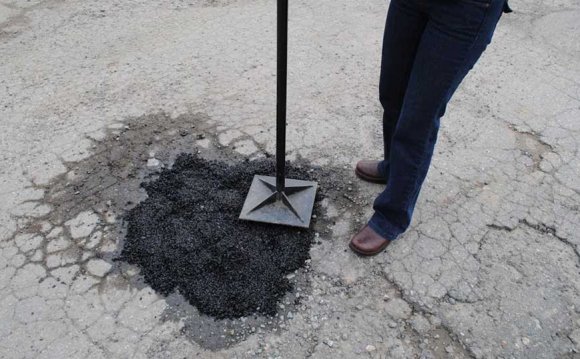

1: Thick, well-compacted granular base
Eight ins of granular fill can be used for poor-draining grounds, 4 in. for well-draining grounds.
2: Proper asphalt depth
A 2-in. level of asphalt is spread after the fill has satisfied for a couple of times.
3: Good asphalt compaction
The asphalt is compacted with heavy rollers immediately after it really is spread. If asphalt cools excessively before moving, it can not be compacted really.
The first step is finding an established specialist to do the job. The residential asphalt industry features above its share of fly-by-nights. The actual only real advice I can offer is to look for one with recommendations from property owners who're still pleased with their driveways after 10 years or more. Assuming you find an excellent specialist, the others should take care of it self.
Materials and methods described here for an excellent driveway tend to be pretty quick. Discuss all of them with your possible specialist before signing regarding dotted line, and then stay house to help keep an eye fixed regarding real installation to make sure you’re getting everything you purchased.
The secrets of a durable driveway
 One of this main design goals for a durable asphalt driveway is always to offer adequate pitch for draining water down and away from the driveway. Water must not pond on the surface or beside the driveway where it'll seep underneath to damage the earth or cause frost heaving.
One of this main design goals for a durable asphalt driveway is always to offer adequate pitch for draining water down and away from the driveway. Water must not pond on the surface or beside the driveway where it'll seep underneath to damage the earth or cause frost heaving.
The key part of a lasting driveway could be the main granular base. It should have the right depth and structure. Base materials vary by region and may be crushed rock or “conbit” (recycled cement and asphalt—it’s crushed and reused). Crushed coarse materials such as these have actually jagged surfaces so they’ll compact and lock collectively in a hardcore, settle-resistant matrix. A binder like cement dirt is put into hold all of it together. Coarse materials also drain liquid from in driveway so ice won’t kind and crack the asphalt surface.
Once your old driveway happens to be torn away, both you and the contractor should closely examine the prevailing base (the fill in asphalt area) and perchance eliminate or add material. Searching in to the exposed base will tell you its kind and thickness. Recommended thicknesses tend to be 8 in. of base over clay soils or 4 in. over well-drained sandy grounds. Should your base is inadequate, it must be upgraded. Low bids may signal that a contractor is not willing to put in a good base. Ask the specialist about this info before you sign up.
Mechanical compaction of the base, subbase and asphalt is essential for a lasting driveway. Preferably, the base should remain for approximately per week in order for all-natural settling will increase the mechanical compaction. When compacting subbases, contractors uses hefty rollers (and sometimes even the tires for the earth-moving gear) for big places and dish compactors for smaller areas. However when moving on asphalt, heavy compacting equipment is needed. Choose a contractor who's 1- to 3-ton rollers for compacting the asphalt it self. Edges are raked and created to 45-degree sides, after that full of a hand tamper.









